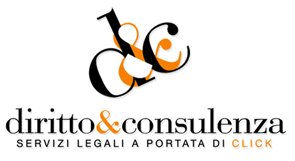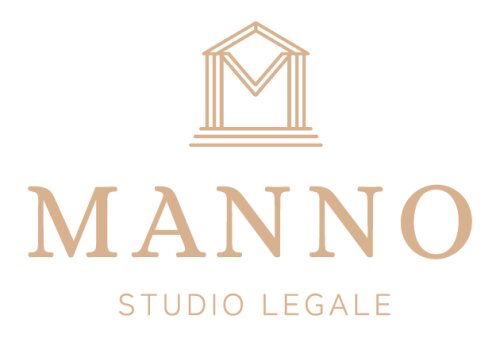Best Agriculture Lawyers in Lecce
Share your needs with us, get contacted by law firms.
Free. Takes 2 min.
List of the best lawyers in Lecce, Italy
About Agriculture Law in Lecce, Italy
Lecce, located in the heart of the Salento region in southern Italy, has a rich tradition in agriculture. The region is renowned for its olive oil, wine, grain, and horticultural production. Agriculture remains a crucial economic driver, with many local families involved in farming, viticulture, and agri-food businesses. Given its prominence, the agricultural sector is subject to a range of complex laws and regulations at the local, national, and European level. These laws address land use, environmental protection, farming practices, food safety, subsidies, and trading of agricultural products.
Why You May Need a Lawyer
Seeking legal advice in agriculture is important for many reasons. Some common situations that often require the expertise of an agriculture lawyer in Lecce include:
- Buying or selling farmland or agricultural property
- Negotiating and drafting agricultural leases or sharecropping agreements
- Dealing with inheritance or succession of family-owned farms
- Applying for or disputing agricultural subsidies and EU contributions
- Resolving disputes regarding land boundaries, irrigation, or farming rights
- Navigating rules concerning organic certification and labeling
- Complying with environmental protection and waste management regulations
- Addressing food safety and quality standards for agricultural products
- Obtaining needed permits for construction, water access, or animal husbandry
- Managing employment and labor issues on farms and agricultural enterprises
A lawyer can provide advice, draft legal documents, represent your interests in negotiations or before authorities, and help you avoid costly mistakes.
Local Laws Overview
Agriculture in Lecce, and more broadly in the Apulia region, is governed by various laws and policies at the municipal, regional, national, and European levels. Key aspects include:
- Land Use and Zoning: Municipalities have zoning plans (Piano Regolatore Generale) that dictate how land can be used. Agricultural land use is protected and conversion to other uses is strictly regulated.
- Environmental Regulations: Farmers must comply with environmental and sustainability standards, particularly regarding waste disposal, water management, and the application of fertilizers and pesticides.
- Common Agricultural Policy (CAP): As part of the EU, Italian farmers can access subsidies and incentives, subject to compliance with CAP rules on cross-compliance, greening, and rural development.
- Olive Oil and Wine Protection: Lecce is home to numerous products with Protected Designation of Origin (DOP) and Protected Geographical Indication (IGP) status, which require specific production methods and quality controls.
- Food Safety and Traceability: Farmers and food processors must adhere to strict food safety standards and maintain traceability of their products.
- Labor Laws: Employment on farms is governed by national labor contracts and local regulations, including guidelines for seasonal and migrant workers.
- Inheritance Laws: Italian inheritance law heavily regulates the transfer of property, with mandatory shares for heirs, particularly relevant for family farms.
Navigating these laws often requires professional legal guidance to ensure compliance and protect interests.
Frequently Asked Questions
What permits do I need to start a farm in Lecce?
Starting a farm may require land-use approval, building permits for structures, environmental impact assessments, and registration with the local Chamber of Commerce and agricultural authorities.
Can foreigners own agricultural land in Lecce?
Foreigners can generally purchase agricultural land in Italy, subject to restrictions based on reciprocal agreements between Italy and the foreigner's home country. Certain sizes and types of land might have additional requirements.
How are agricultural subsidies accessed?
Subsidies are managed through the Italian Agricultural Payment Agency (AGEA) with specific applications. Eligibility depends on compliance with CAP rules and maintaining records of agricultural activity.
What should I know about selling agricultural produce?
Farmers must comply with food safety, labeling, and traceability requirements. Some products like olive oil or wine may have additional certification processes to protect quality and origin.
What laws apply to hiring seasonal workers?
Seasonal agricultural work is regulated by Italian labor law and sector-specific contracts. Proper contracts, fair wages, and reporting to authorities are mandatory. There are specific provisions for hiring non-Italian workers.
How do I resolve a land boundary dispute?
Disputes over land boundaries can be settled through negotiation, mediation, or court proceedings. Expert surveys and historical records are often required to establish claims.
What regulations affect the use of pesticides?
Only approved pesticides can be used, following strict application rates, safety intervals, and record-keeping. Certain areas in Lecce may have additional restrictions due to environmental protection zones.
How does EU law impact local agriculture?
The EU’s Common Agricultural Policy (CAP) shapes subsidies, environmental standards, and cross-border trade. Compliance is essential for receiving EU funding and market access.
What are the rules for organic farming?
Organic farms must meet national and EU standards on cultivation, pest management, and livestock care and pass inspections to maintain certification.
How does inheritance affect farm ownership?
Italian law mandates a portion of farmland must go to statutory heirs (such as children or spouse). Legal tools like succession planning or the creation of agricultural companies can help manage inheritance issues.
Additional Resources
If you are seeking more information or support, these organizations may be helpful:
- Confagricoltura Lecce: Represents farmers and provides support on legal, technical, and policy issues specific to Lecce.
- Coldiretti Lecce: Offers assistance with applications for subsidies, technical advisory services, and legal counseling for farmers.
- Regione Puglia - Assessorato Agricoltura: Handles regional regulations, development programs, and advice on agricultural matters.
- Camera di Commercio di Lecce: Manages business registrations, provides legal information, and oversees food product certification.
- AGEA (Agenzia per le Erogazioni in Agricoltura): Manages subsidy payouts and controls for CAP-related funding.
- Local Lawyers Specializing in Agricultural Law: Available for personalized and case-specific legal assistance.
Next Steps
If you need legal assistance for an agricultural matter in Lecce, consider the following steps:
- Identify your specific legal issue or question.
- Gather all relevant documents (such as deeds, contracts, subsidy applications, correspondence, and permits).
- Contact a local lawyer or a professional association with expertise in agricultural law for a consultation.
- Prepare your questions and concerns for the meeting to make the most of your time.
- Follow up as needed, whether for representation, contract drafting, negotiations, or submitting official applications.
- Visit local agencies or associations listed above to access further support and stay informed about changes to regulations.
Taking these proactive steps can help protect your rights and ensure your agricultural business complies with all applicable laws in Lecce, Italy.
Lawzana helps you find the best lawyers and law firms in Lecce through a curated and pre-screened list of qualified legal professionals. Our platform offers rankings and detailed profiles of attorneys and law firms, allowing you to compare based on practice areas, including Agriculture, experience, and client feedback.
Each profile includes a description of the firm's areas of practice, client reviews, team members and partners, year of establishment, spoken languages, office locations, contact information, social media presence, and any published articles or resources. Most firms on our platform speak English and are experienced in both local and international legal matters.
Get a quote from top-rated law firms in Lecce, Italy — quickly, securely, and without unnecessary hassle.
Disclaimer:
The information provided on this page is for general informational purposes only and does not constitute legal advice. While we strive to ensure the accuracy and relevance of the content, legal information may change over time, and interpretations of the law can vary. You should always consult with a qualified legal professional for advice specific to your situation.
We disclaim all liability for actions taken or not taken based on the content of this page. If you believe any information is incorrect or outdated, please contact us, and we will review and update it where appropriate.









